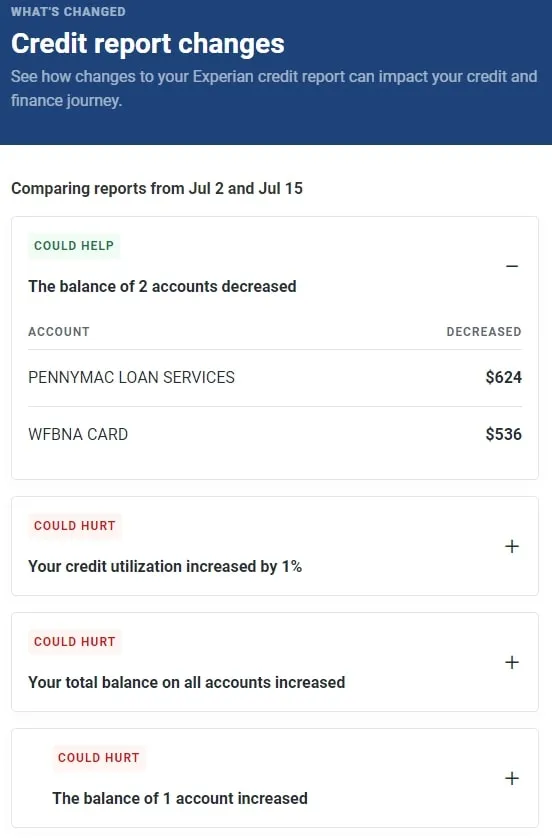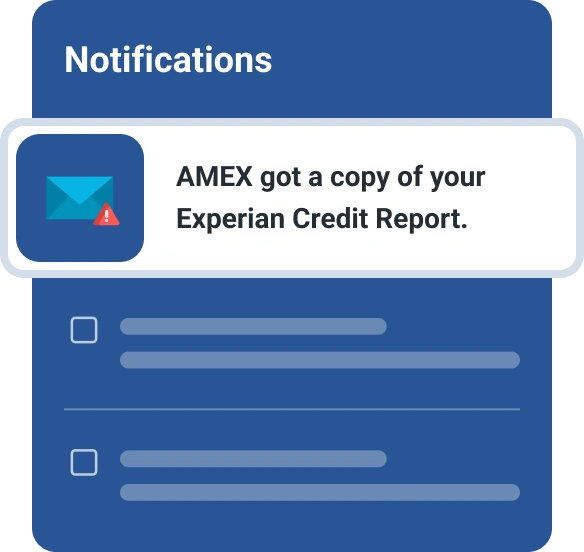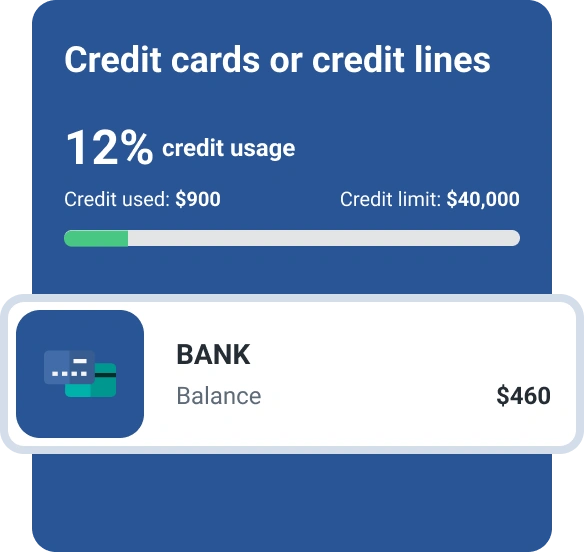What to Look for When You Review Your Credit Report
Quick Answer
When you review your credit report, look for information broken up into these sections: personal information, accounts, collections, inquiries and public records.

Regularly checking your credit reports is an important part of managing your personal finances. When you review your credit report, look for unexpected changes in each section and every account. If you see something amiss, you can contact the company that reported the incorrect information and you have the right to file a dispute with the appropriate credit bureau.
What to Review on Your Credit Report
Your credit reports contain several sections, including personal information, accounts and inquiries. The exact order and names can vary depending on where you got a copy of your credit report.
Every section is important in its own way, even if the information in the section doesn't directly affect your credit scores. Here's what to look for in each of them.
Personal Information
Your personal information can include your:
- Name, including any nicknames or other names you previously used
- Year of birth
- Addresses and any address variations
- Phone numbers
- Employers that have been reported to the credit bureau whose report you're checking
- A spouse or co-applicant's name
- A personal statement
Experian doesn't list your actual Social Security number on your credit report for security reasons, but variations reported to us by your lenders will appear.
Unfamiliar names or addresses may be a sign that someone stole your identity or is using some of your information to commit credit fraud.
What to look for: Incorrect information that isn't clearly the result of a typo.
Learn more: How to Check for Identity Theft
Credit Accounts and Collections
The accounts categories may be the longest part of your credit report. You can look for:
- Accounts you don't remember opening
- Collection accounts for bills you didn't owe
- Incorrect credit limits, loan balances or payment amounts on your accounts
- The same account being reported as open in two different areas
- Accounts reported as closed when they're open or open when they're closed
- Other errors in your accounts' details
Keep in mind that the balances on your report may not reflect the current balance on your accounts, as most lenders only update balance information with the credit bureaus within their normal reporting cycle, which is typically once a month.
Additionally, closed accounts can stay in your report for up to 10 years if the account was closed in good standing. Most negative marks fall off your credit report after seven years, regardless of whether the account is open or closed. Collection accounts can also stay on your report for seven years from the original delinquency date of the debt, even if you settle or pay off the debt.
What to look for: Accounts you don't recognize and incorrect information within your accounts.
Learn more: Which Accounts Appear on Your Credit Report?
Inquiries
An inquiry is a record of when your credit report is accessed by a person or organization (yourself included) that's legally authorized to do so.
- Hard inquiries: Generally, these are the result of a business checking your credit report because you submitted a new application for credit or services. Hard inquiries can impact your credit scores and may stay on your credit reports for about two years.
- Soft inquiries: These can occur when you check your own credit or when a lender obtains your information as part of their preapproval screening. They may also be the result of companies you already do business with conducting periodic account reviews on their customers. Soft inquiries stay on your report for about two years, but they don't affect your credit scores.
Pay attention to new hard inquiries, as they're often the first step in opening a new credit account. An unexpected hard inquiry might indicate someone used your information to apply for a new account.
What to look for: Hard inquiries that aren't the result of an application you submitted.
Public Records
Bankruptcy is now the only public record that appears in a credit report.
- Chapter 7 bankruptcies can stay on your credit reports for up to 10 years from the filing date.
- Chapter 13 bankruptcies can stay on your credit reports for up to seven years from the filing date.
If you believe there is incorrect information listed in your public records section, you have the right to file a dispute with Experian.
What to look for: Information regarding any bankruptcy filings.
Benefits of Checking Your Credit Report
Regularly checking your credit reports can be important for several reasons:
- You can learn what and when your creditors report to the bureaus.
- You'll know when something important changes, such as when a negative mark gets removed from your credit history or a new account gets added.
- You can look for information you don't recognize that could indicate identity theft or fraud.
If you're trying to improve your credit scores, knowing where you currently stand and what's impacting your scores can also be helpful. Although there are many types of credit scores, most scores depend entirely on what's in one of your credit reports. So, focusing on improving what's in your credit could help all your scores over time.
Learn more: Why You Should Check Your Credit Report Regularly
How to Get Your Free Credit Report With Experian
You can get your FICO® ScoreΘ and credit report for free and credit report for free with an account from Experian. Your account comes with complimentary score and report tracking, with real-time notifications when there are important changes.
Your account can also offer insights that you might not see elsewhere, such as an overview of the recent changes in your credit report and how they could affect your credit scores.

Changes in your credit report are often the result of normal activity, such as using your credit card, paying bills and applying for new accounts. However, unexpected changes, like a name being added that you don't recognize or a new account appearing when you didn't apply for one, could be a result of fraud.
How to Dispute Inaccurate Information
You have the right to dispute errors in your credit reports for free, and you can generally open a dispute by mail, phone or online.
If the error appears on all three of your credit reports, you might want to send the dispute to the company reporting the erroneous information to the bureaus. Alternatively, you can file a dispute with each credit bureau directly.
If you want to dispute information in your Experian credit report, the online option could be the quickest and easiest:
- Go to the Experian Dispute Center.
- Click "Start a new dispute" to pull up your credit report and then find the information you want to dispute.
- Select the account or information and then choose a reason for the dispute.
- Review the dispute and click submit. You may have a chance to upload supporting documents to help with the investigation.
Once you submit a dispute, Experian will investigate the information—often, by contacting the data furnisher that provided the disputed data. Credit bureaus generally take 30 to 45 days to investigate and resolve disputes, but it could take less time.
Depending on the results of the investigation, Experian may correct, update or delete information that can't be verified or verify the information as accurate. Verified information can't be removed from your credit report.
Use Free Monitoring to Spot Changes
Closely reviewing each of your credit reports can be important, and you may want to make it a regular practice. You can also use a credit monitoring service, such as Experian's free credit monitoring, to keep an eye on your credit reports. If you receive an alert about an important change in your information, such as a new account or credit inquiry, you can then take a closer look at your report to investigate the change.
What’s on your credit report?
Stay up to date with your latest credit information—and get your FICO® Score for free.
Get your free reportNo credit card required
About the author
Louis DeNicola is freelance personal finance and credit writer who works with Fortune 500 financial services firms, FinTech startups, and non-profits to teach people about money and credit. His clients include BlueVine, Discover, LendingTree, Money Management International, U.S News and Wirecutter.
Read more from Louis

